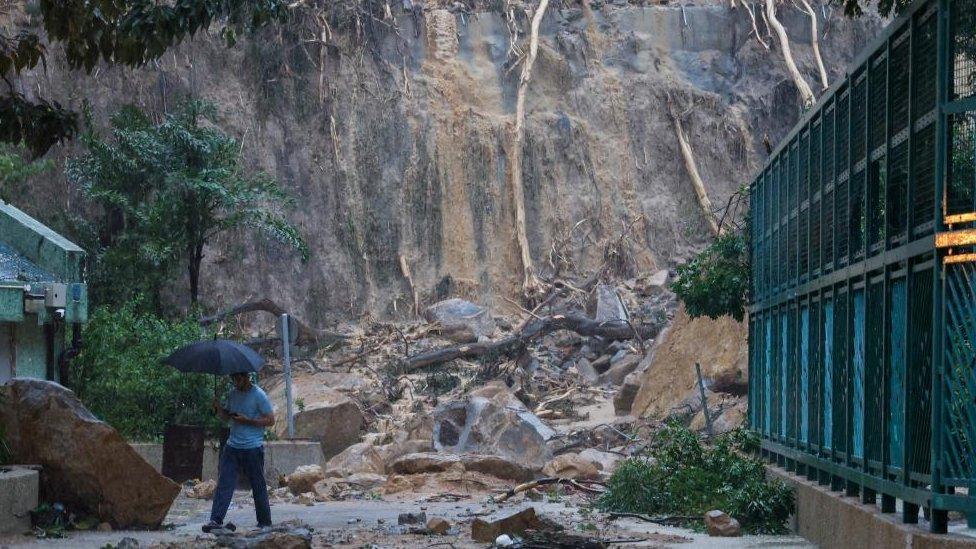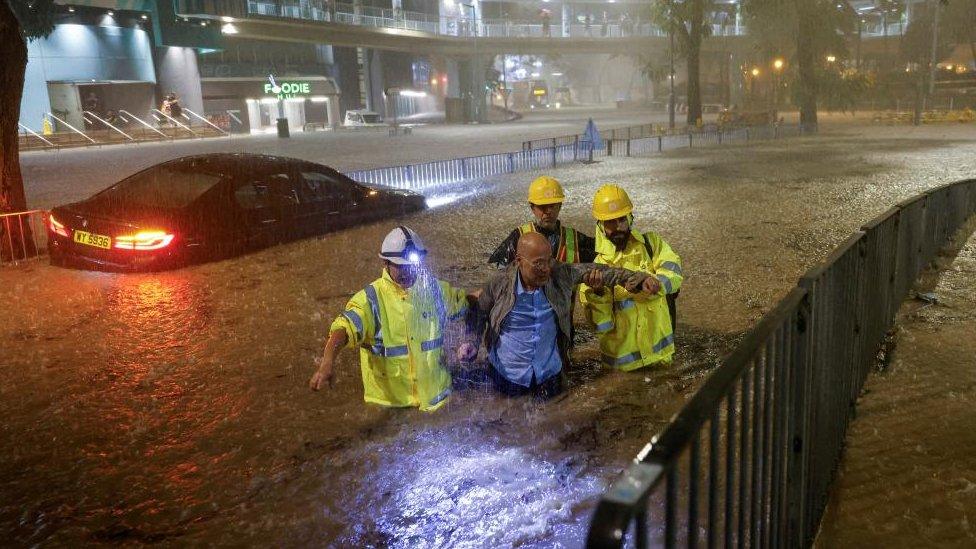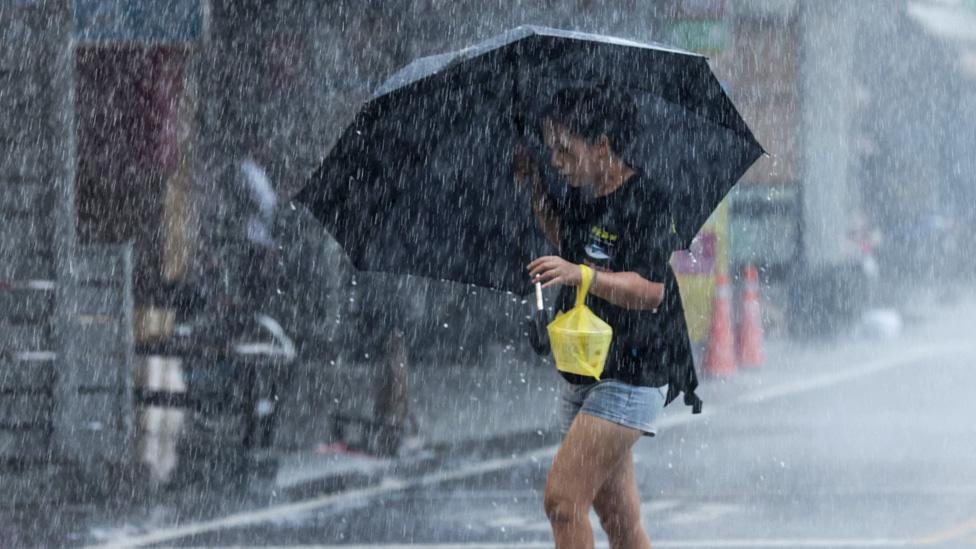Hong Kong and southern China battle widespread flooding from record rains
- Published
Watch: Roads collapse and streets flood in Hong Kong
Hong Kong and cities across southern China are battling flooding caused by the heaviest rains in over 140 years.
On Friday, streets and subway stations were under water in Hong Kong as officials shut schools and workplaces.
Emergency services said more than 100 people had been taken to hospital and several rescues had taken place - with a black weather warning issued.
Pictures show the rain turning streets into raging rivers, external, flooding shopping centres and public transport.
On social media, people were seen climbing on to cars and other elevated platforms to escape the waters, which have risen several metres-high in some areas, blocking off subway entrances.
On Thursday, authorities issued the black warning due to rainfall exceeding 70mm an hour. The Hong Kong Observatory later that night reported an hourly rainfall of 158.1 millimetres, the highest since records began in 1884.

A man walks past the debris of a landside in Hong Kong
The city's cross harbour tunnel, a key route connecting the main island to the Kowloon peninsula in its north, was inundated. The rain also triggered landslides in Hong Kong's mountainous areas - blocking some highways.
By Friday afternoon, the downpours had eased with authorities downgrading the rainstorm from a "black" warning to an "amber" alert. But they warned showers were expected to persist until Saturday.
More than 200mm of rain was recorded on Hong Kong island, Kowloon and the north-eastern part of the city between 18:00 local time (10:00 GMT) and midnight - a total that exceeds the amount the entire city typically receives within certain months.

Allow X content?
This article contains content provided by X. We ask for your permission before anything is loaded, as they may be using cookies and other technologies. You may want to read X’s cookie policy, external and privacy policy, external before accepting. To view this content choose ‘accept and continue’.

Heavy rain has also drenched southern China, with the city of Shenzhen - across the border from Hong Kong - reporting its heaviest showers since records began in 1952.
Hundreds of flights have been suspended in the wider Guangdong province, while local authorities advised residents in low-lying areas to consider evacuations.
Tens of millions of people live in the densely populated coastal areas of southern China.
On Thursday night, Shenzhen discharged water from its reservoirs, external after issuing a notice to Hong Kong - an action that raised questions from Hong Kong locals online as to whether this exacerbated their city's flooding.

Workers rescuing a driver stranded after waters rose quickly in Hong Kong
But Hong Kong's security chief Chris Tang said on Friday the discharge had no impact on the city's floods and the action was safe for both Shenzhen and Hong Kong.
China's meteorological administration expects extreme rainfall to continue in the country's southwestern region on Friday and Saturday.
The latest downpour comes less than a week after two typhoons, Saola and Haikui, hit southern China in quick succession - and sparked a citywide shutdown in Hong Kong.
Climate change has increased the intensity and frequency of tropical storms, leading to an increase in flash flooding and greater damage.
Related topics
- Published4 September 2023
